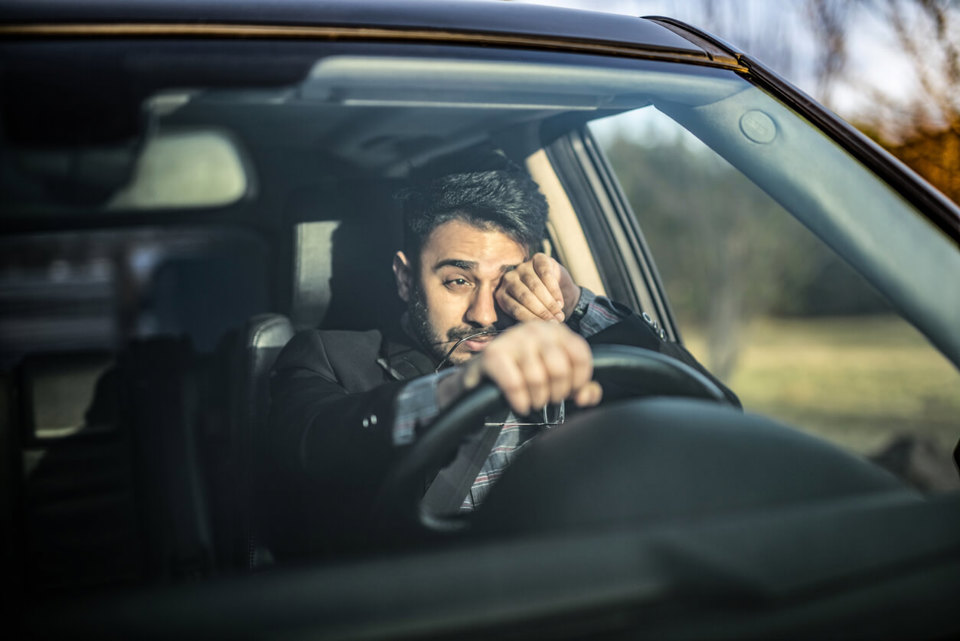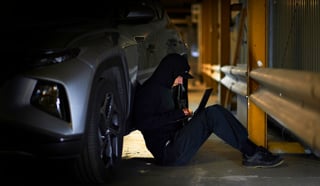Male drivers are being urged to get plenty of sleep and take regular breaks, as research from Brake and Direct Line reveals that 45% admit ‘head-nodding' at the wheel - meaning they have been asleep briefly.
Brake and Direct Line's survey also reveals that one in three drivers overall (31%) admit ‘head-nodding' at the wheel - nearly half (45%) of male drivers and one in five (22%) female drivers.
One in 14 drivers overall (7%) admit actually ‘falling asleep' at the wheel - 14% of male drivers and 2% of female drivers - and almost half (49%) of drivers admit driving after less than five hours' sleep - not nearly enough for safe driving. Again, this is more common among men (55%) than women (45%).
Julie Townsend, deputy chief executive, Brake, said: "The fact that so many drivers - especially men - have head-nodded at the wheel is horrifying, even more so that many don't recognise this means they have fallen asleep briefly. This survey suggests this is down to many people failing to ensure they always get sufficient sleep before embarking on journeys.
“We need all drivers to wake up to the fact that ‘head nodding' is falling asleep, and can easily lead to catastrophe, but it can, of course be prevented.
“Brake urges all drivers to pledge to get a good night's sleep before driving, take breaks every two hours, and never try to ‘plough on' when they're tired, because sleep can ensue so quickly. Ultimately, getting home to your loved ones a bit later is better than never getting there at all."
Many drivers aren't aware that if you ‘head nod' (also called ‘micro-sleeps') you have already nodded off, putting yourself and others in a huge amount of danger.
Micro-sleeps can last from two to 30 seconds, meaning that a frighteningly large number of drivers have been temporarily out of control of their vehicles.
Tired driving kills at least 300 people on UK roads every year, with a devastating impact on families across the country - although the actual figure could be much higher as driver tiredness can be hard to prove as a cause of crashes.
Brake urges all drivers to help stamp out devastating crashes by making a pledge to always getting a good night's sleep before driving, taking two-hourly breaks, and pulling over somewhere safe as soon as safe to do so, if feeling tired.
Brake also calls on the government to run more campaigns to raise awareness about the dangers of driving when tired and how to avoid it, as well as calling on them to conduct a review of safe stopping places on motorways, ensuring there are enough to enable drivers to take regular breaks.
Rob Miles, director of Motor at Direct Line, said: "Tiredness and driving are a deadly combination. Not only is there a risk of falling asleep at the wheel, but when we are tired our reactions and awareness of our surroundings are not as sharp as they would normally be. Regular breaks, at least every two hours, are essential for staying alert and awake, as is getting plenty of sleep the night before."
At least 300 people are killed each year as a result of drivers falling asleep at the wheel and tiredness is estimated to cause one in five deaths on UK trunk roads. These crashes typically involve vehicles running off the road or into the back of another vehicle, and are often serious, high speed collisions because the driver does not brake.
Too little sleep radically affects your ability to drive safely: on just five hours' sleep you only have a one in ten chance of staying awake on a lengthy journey. When sleep comes it is not without warning; drivers know when they are getting sleepy.
Warning signs include: difficulty concentrating; yawning; heavy eyelids; eyes starting to ‘roll'; neck muscles relaxing, making your head droop.
Drivers trying to fight off sleep often experience ‘micro-sleeps', nodding off for two to 30 seconds, often without realising or remembering it. This is more than enough to cause a fatal crash: a driver experiencing a six-second micro-sleep at 70mph on a motorway would travel 200m in that time. Simulator studies have shown a clear relationship between ‘micro-sleeps' and crashes.
At-work drivers are particularly at risk from tiredness, because they typically spend much longer hours at the wheel. Nearly half (about four in ten) tiredness-related crashes involve someone driving a commercial vehicle.
If you cause a death while proven to be driving tired, you can be charged with causing death by dangerous driving. The maximum penalty is 14 years in prison.
IAM director of policy and research Neil Greig said: “No one ever suddenly falls asleep at the wheel without some warning ‘nods’ beforehand.
“Ignoring the signs can be potentially fatal as sleep related crashes commonly involve leaving the road and hitting a solid object at high, and usually survivable, speeds. Be aware that the risk is highest if you drive when you would normally be asleep or after lunch when the body’s natural rhythms slow down.
"Coffee, energy drinks or fresh air offer a quick, but all too often short lived reviver so nothing beats a good night’s sleep or a proper break.
"Employers also need to be aware that setting unachievable deadlines that encourage their employees to drive when they are tired is very bad practice."
Brake's advice Brake urges all drivers to have a good night's sleep before any journey. If you drive when tired, it is impossible to stop yourself eventually nodding off at the wheel. Drivers should also take a break at least every two hours for at least 15 minutes, but should stop sooner if they feel tired.
Winding down the window or turning up the radio does not prevent sleep. If you feel tired you need to stop in a safe place as soon as possible. Drink coffee or ideally an energy drink with caffeine in it, then try to snooze for ten minutes in your vehicle.
By the time you wake up, the caffeine will have kicked in. If you feel alert again, drive on. If not, stay put. Bear in mind the effects of caffeine are temporary; the only real solution is a good night's sleep.
If you wake up in the morning feeling exhausted, struggle to stay awake, snore or wake up struggling to breathe, you may suffer from a relatively common condition called sleep apnoea.
Sufferers are at a significantly increased risk of crashing. However, the condition is fully treatable, so if you experience symptoms, stop driving immediately and see a doctor.
Calls for government action Brake calls for a national audit of rest areas and crash barriers on motorways and trunk roads to ensure that there is adequate provision for drivers to rest regularly, and to minimise the consequences of crashes caused by tired drivers.
Brake is also calling on the Government to run more education campaigns warning of the dangers of driving tired, and explaining what drivers can do to prevent tired driving crashes.




















Tariq Musaji DSA Master ADI - 10/01/2014 07:42
A power nap is usually good for about 20 minutes. Have coffee or tea which is a caffeine stimulant. This will take about 15 minutes to absorb in to your blood stream. You know your body and how it reacts to tiredness, so act quickly to prevent a major catastrophe.